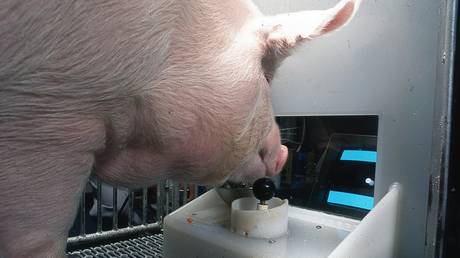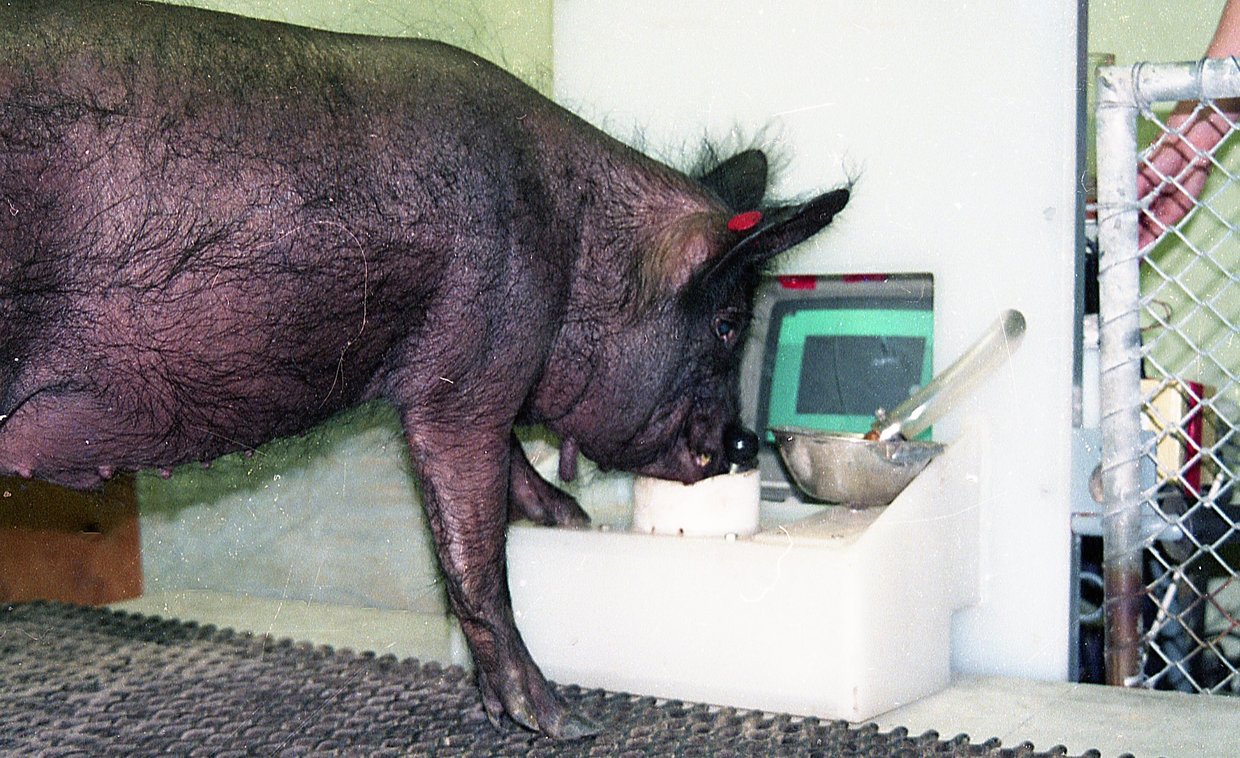
In a highly unexpected result, pigs showed unexpected behavioral agility and mental flexibility, learning to play a joystick-controlled video game typically reserved for experiments with primates.
The findings of the experiments with the four pigs were published in Frontiers in Psychology and showcased how all four developed and displayed at least some understanding of the game’s concept, despite the lack of hands or opposable thumbs typically required to grip a joystick.
The test subjects consisted of two Yorkshire pigs named Hamlet and Omelette and two Panepinto micro pigs, Ebony and Ivory, all of whom were trained to use a joystick with their snouts while observing a computer monitor in front of them.
Using food rewards and reinforcement techniques, the pigs were slowly but surely taught to play a basic video game in which the goal is to move the joystick toward several target walls on the screen.

The animals performed well above chance, indicating they had established a connection between the joystick and the digital action taking place on the screen before them. All this, in spite of the fact that they are far-sighted animals with trotters instead of hands.
“It is no small feat for an animal to grasp the concept that the behavior they are performing is having an effect elsewhere. That pigs can do this to any degree should give us pause as to what else they are capable of learning and how such learning may impact them,” said lead author Dr. Candace Croney, adding that the research may force a rethink of our relationship with the animals.
Throughout the experiments, food rewards were used to teach and reinforce the learning but the animals also responded to verbal and tactile encouragement in the absence of treats, showing the researchers that pigs are capable of far deeper understanding of the world around them than they may have been given credit for.
While the pigs did not match the skills displayed by non-human primates, this may be as a result of the nature of the experiment itself, which favors animals with different vision and dexterity.
The researchers ran out of time before they could add an additional layer of complexity to the experiment; communicating with the pigs via a series of symbols, as they have done before with primates. It remains to be seen just how complex the pig brains and behavior really are but the research is likely to raise ethical questions about animals’ capacity for deeper learning.
Think your friends would be interested? Share this story!




